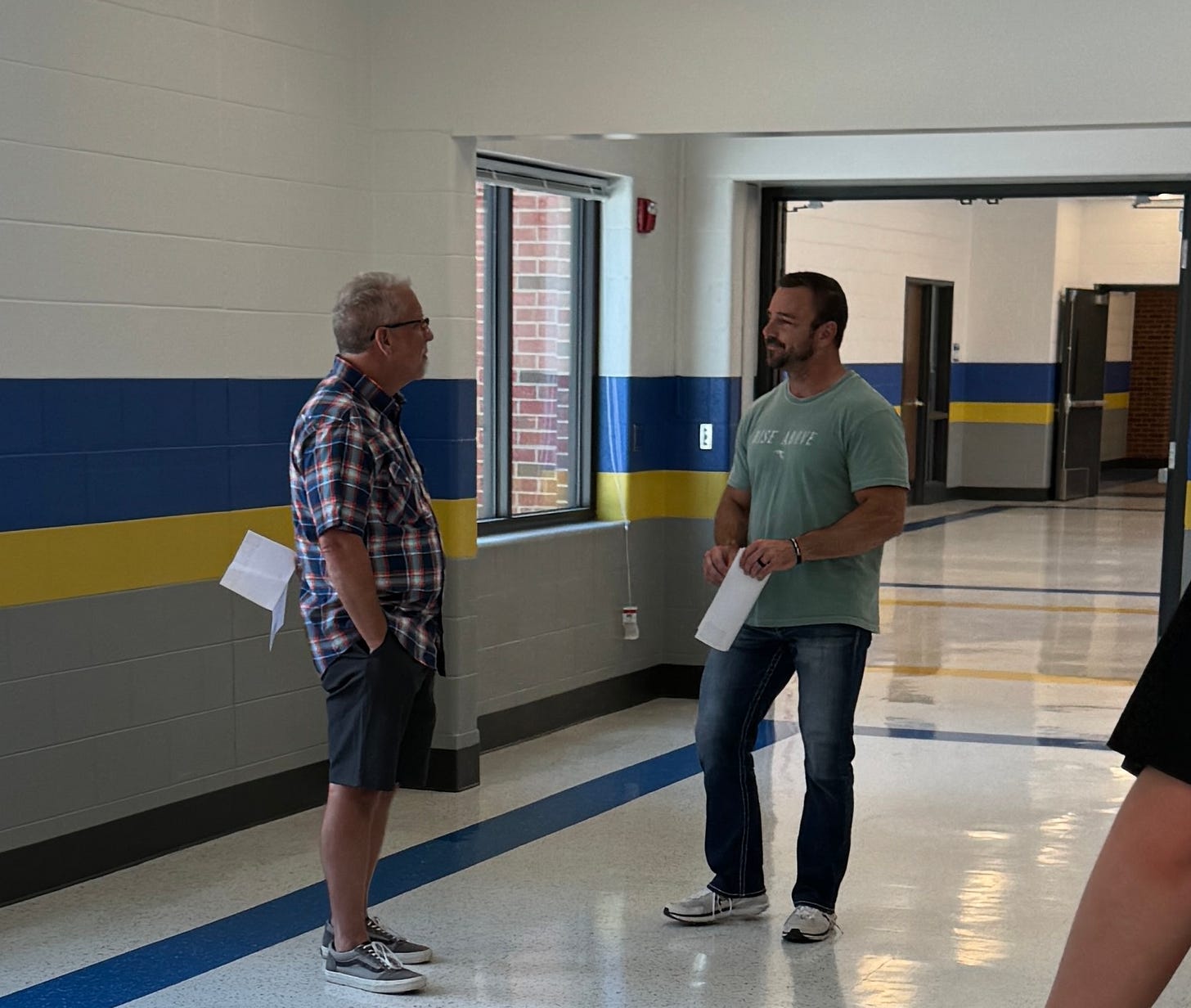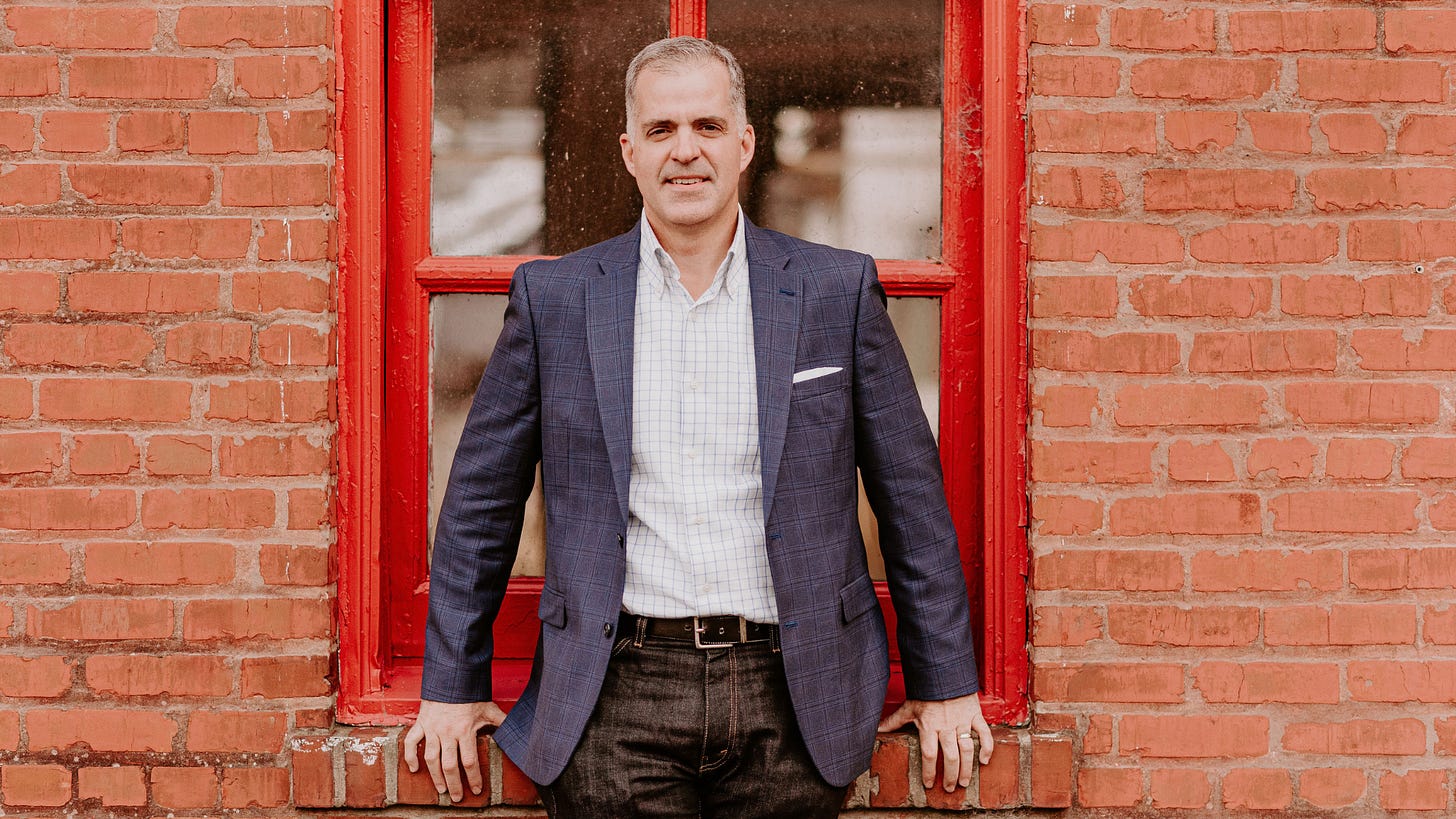Christian Collaboration: An Alternative to Christian Cannibalism
How Bearing with One Another Bears Witness to the Gospel

It was 90 seconds into our first introduction. Okay, 2 minutes max.
In that brief moment, I learned this gentleman was a fellow believer and a former pastor. And just as quickly as he offered that information, he called out a well-known brother in Christ in our tribe and, as they say, threw him under the bus. He went on to remark about this man’s motives, his own thoughts around some important issues, and then he invited me to weigh in.
The constraints of time and the Holy Spirit, I think, in this lightening round did not allow me to say everything I wanted to say, but with the few words I had, we both moved along with greater clarity, and perhaps, the hope of another conversation.
As I reflect on that experience, a few things are important:
This man’s concerns centered around how evangelicals are being viewed in the public square. His passion for the public witness of the church is sincere.
According to his testimony, he actively shares the Gospel in personal witness and public proclamation. That’s an example for all of us to follow. We need more of that!
It appeared to me that his comments were spoken out of sincere grief in his understanding of the state of evangelicalism rather than any intentional contentiousness.
I think all of us can relate to the frustration of seeing the private and public missteps, foibles, and even sinfulness of far too many evangelical leaders and institutions. Far too often, our actions have divided churches and distracted our neighbors from the glory of God and the hope of the Gospel.
And in this age of social contagion, every failure is magnified and multiplied beyond the original offense, and too few solutions are found.
In this age of social contagion, every failure is magnified and multiplied beyond the original offense, and too few solutions are found.
What’s at the Core?
During this current season of ministry, I’ve been looking more diligently for the core Christian interactions that actually move everyday people toward Jesus and make a kingdom impact in our communities.
As evangelical Christians attempt to hold the rope of biblical and missional orthodoxy for the next generation, it’s difficult to know how to live. Are we to be idealists, realists, or pragmatists? Are we to be focused on a pure church or a transformed community? Should we be culture warriors or winsome witnesses? What actually honors the Lord, loves neighbors well, and joins Jesus’ kingdom advance?
What Happens When We Collaborate?
Every thoughtful, born-again believer approaches certain theological and cultural issues with presuppositions, temperaments, and life-experiences that influence how we answer those questions. Those factors are not only important, but they are part of God’s providential work in our lives. His design of each of us is not without effect.
We’ve spent time praying, examining the biblical text, learning from others, and considering the viable options. And based on those factors, we make decisions about how we will live out our faith.
Interestingly, the same is also true for the brothers and sisters who approach issues from a different perspective.
If we are walking with God and pursuing the best possible conclusion, what would happen if we assumed our brothers and sisters with whom we disagree are doing the same thing?
If we are walking with God and pursuing the best possible conclusion, what would happen if we assumed our brothers and sisters with whom we disagree are doing the same thing?
Mind you, I’m talking about born again, Bible-believing Christians. So, what would happen if we delayed our moral judgment of our opponent, and asked the next question to dive a little deeper?
What would happen if as part of our decision making process we collaborated with dissenting fellow pilgrims? What would happen if rather than discounting their views out of hand, labeling them as either woke or fundamentalists, we engaged with them in good faith to better understand what informs and motivates them?
This is how sincere academics approach their work. They regularly consider other, opposing sources and viewpoints as a valued part of their research. Without diverse insights, conclusions are vulnerable to error, and are as a result, suspect.
Without question, the issues we are debating in the current era are important, and the disagreements, in the end, will be consequential, but it’s in the collaborative process that the demand for uniformity is abandoned, and the priority of unity is elevated.
It’s in the collaborative process that the demand for uniformity is abandoned, and the priority of unity is elevated.
And it’s in this core interaction that progress is made.
Away with Conventional Wisdom
Christian collaboration is also important because we’re all highly influenced by what we happen to know, which is always limited. We really don’t know all the facets of a particular issue, and we certainly do not know the motives, intent, or best possible outcome in the hearts and minds of our opponent.
Christian collaboration is important because we’re all highly influenced by what we happen to know, which is always limited.
Jesus saw this vulnerability in our nature, and made extra efforts to invite His disciples to dig deeper and get to the heart of the matter. For example, He said things like, “You have heard it said…but I tell you.”
Here’s just one excerpt like that from the Sermon on the Mount:
You have heard that it was said, Love your neighbor and hate your enemy. 44 But I tell you, love your enemies and pray for those who persecute you, 45 so that you may be children of your Father in heaven. For he causes his sun to rise on the evil and the good, and sends rain on the righteous and the unrighteous. 46 For if you love those who love you, what reward will you have? Don’t even the tax collectors do the same? 47 And if you greet only your brothers and sisters, what are you doing out of the ordinary? Don’t even the Gentiles do the same? 48 Be perfect, therefore, as your heavenly Father is perfect. -Matthew 5:43-48
According to Jesus, going along with conventional wisdom is not wise at all. It actually lands us in the same category as every other run-in-the-mill sinner—outside of Christ.
For Jesus, the issues that make our enemy our enemy are secondary to how we love our enemy.
For Jesus, the issues that make our enemy our enemy are secondary to how we love our enemy.
The issues are not unimportant. There’s a place for essential and nonessential theological, ethical, and missiological differences to be adjudicated. See Martin Luther, William Wilberforce, and Martin Luther King, Jr. for examples. But even for these giants, they did everything possible to love their enemies well, and took significant criticism from their supporters for doing so.
The issues, even the important ones, do not define our relationship, or how we love one another.
Is It Orthodoxy?
Interestingly, when we define personal faithfulness by our orthodoxy, we can miss orthodoxy all together. This was the plight of the Pharisees who attempted to corner Jesus on the question of the greatest commandment. Jesus answered, "Love God and love your neighbor.” The Pharisees were silenced for a moment and had no basis for objecting, but they also had no intent to obey Jesus.
Like those early orthodoxes, we too often elevate the issue over the relationship and cannibalize one another along the way. And every time we do, we retard the Gospel rather than preserve or, much less, accelerate it.
Like those early orthodoxes, we too often elevate the issue over the relationship and cannibalize one another along the way. And every time we do, we retard the Gospel rather than preserve or, much less, accelerate it.
To my dismay, our neighbors read our worst and most caricatured headlines while our good news stories get buried. But what our neighbors will never miss is how we love one another and how we love them. Unconditionally. Open-handedly. Consistently. Powerfully.
That’s the love, the unity, the brotherhood and sisterhood Jesus prayed for in John 17, because He knows that is the great apologetic for our personal and public witness of His redeeming work that transforms lives.
PICTURE OF THE WEEK
PODCAST RECOMMENDATIONS
If you like golf and love Jesus, the Bible Caddie podcast is for you.
For a great conversation on faith and work and the Christian’s role in secular life, check out the latest episode of Dan Darling’s The Way Home where he talks to David Bahnsen.
Find these wherever you listen to podcasts.
EVERYONE’S WILSON | THE EVERYONE’S WELCOME NETWORK
I’m the Executive Director of Everyone’s Wilson and The Everyone’s Welcome Network—a platform for Gospel transformation. Our mission is to unite the Church to engage the community, so everyone thrives. Very simply, we’re passionate about helping Jesus-loving people live like missionaries in their local community through prayer, service, evangelism, and collaboration.
To keep up with our work at Everyone’s Wilson, you can Follow Us on the Socials or Subscribe to the Everyone’s Wilson Newsletter Here.
If you, your church, or your community leaders are interested in creating or joining community transformation collective in your community, I’d love to connect with you.
Sign up as an Everyone’s Wilson Prayer Partner HERE.
Please consider partnering with us financially. You can give HERE. All gifts are tax-deductible.
I’D LOVE TO HEAR FROM YOU.
If you don’t already, please follow my personal accounts on Facebook, Instagram, or LinkedIn.
Finally, thank you for reading and subscribing to this newsletter.
If it’s helpful, I’d love to hear about it. If it’s not, I don’t want to hear about it, but I probably need to. So either way, please give me some feedback.
Just click the button for my contact information.






